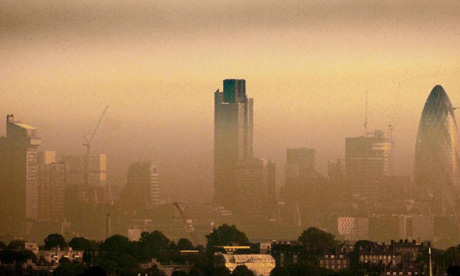Saturday, 26 April 2014
Empty Car Park Spaces Offer Japan a place for Solar Panels
Developers of solar panal projects in Japan are looking to rooftops and empty lots in response to constraints limiting connections to the grid and difficulties finding suitable land. government approvals for smaller-sized projects of less than 1 megawatt have outnumbered larger projects every month since 2013, according to data based on official figures.
The pattern of approvals reverses the trend set when Japan first began offering incentives for clean-energy in July 2012. Developers initially favored “mega” projects built on large patches of open land.
From May 2013 through January -- the latest available figures provided by the government -- Japan approved 6,500 megawatts of solar projects in the 10-kilowatt to 1-megawatt category. That’s double the approvals for larger projects. A solar plant with 1 megawatt of capacity can generate enough electricity for about 316 typical Japanese homes.
Projects of less than 1 megawatt are usually found on rooftops, unused land, or in industrial areas, the Institute for Sustainable Energy Policies said in a report in March. The segment accounted for about a half of Japan’s solar capacity added after the introduction of inducements designed to boost clean-energy development, according to the report.
Sunday, 20 April 2014
Green light for UK carbon capture and storage
 A UK project to capture CO2 and bury it under the North Sea looks set to receive a 300 million euro boost and a green light from EU
A UK project to capture CO2 and bury it under the North Sea looks set to receive a 300 million euro boost and a green light from EU
The EU Europeans commission has announced that the CCS project ,which is a project that aims to capture and store carbon under the north sea, is in line to win £250m (300 euros). The gas will be taken from a new coal fired power station in north Yorkshire which is in fact close to the existing drax biomass facility.
Many climate scientists believe that CCS will have a key part to play in reducing future carbon dioxide emissions.
In 2012, the European Union was unable
to find a single project to fund Undeterred, the EU Commission again asked governments to submit written
proposals on CCS and, according to officials, the UK has nominated the White
Rose project.
Saturday, 5 April 2014
Air pollution: High levels Begin to ease
 |
| Photograph: Matthew Fearn/PA |
BBC Weather's Peter Gibbs said the pollution had peaked and "should go down quite rapidly" in the coming days.Data showed pollution levels had dropped from the maximum 10 on Thursday to mainly moderate levels.
But, David Cameron has been heavily criticised for "misunderstanding" the problem and suggesting it was a temporary issue caused by Saharan dust.The European Commission's environment spokesman, Joe Hennon, said the British prime minister's remarks were "more than disappointing".
Health effects
Those with existing lung and heart conditions could find that their symptoms worsen.
They should avoid doing too much, especially outdoors
Healthy people may experience minor symptoms such as a sore throat or a tickly cough
They should avoid strenuous activities in order to reduce such symptoms
What will pollution do to us?
He told the Guardian newspaper: "To say this is a temporary issue caused by Saharan dust shows a major misunderstanding of the air pollution issue.
"It's clearly an issue you would expect any government to deal with if it's serious about protecting the health of the general public."It shows that the problem is not yet understood and one of the reasons we're taking legal action against the UK is that they've not met the targets they agreed to. If I was living in the UK then I would not be happy about that."
Mr Cameron told the BBC on Thursday that he did not go for his morning run because of the Saharan dust, which he described as a "naturally occurring weather phenomenon".
Subscribe to:
Comments (Atom)
